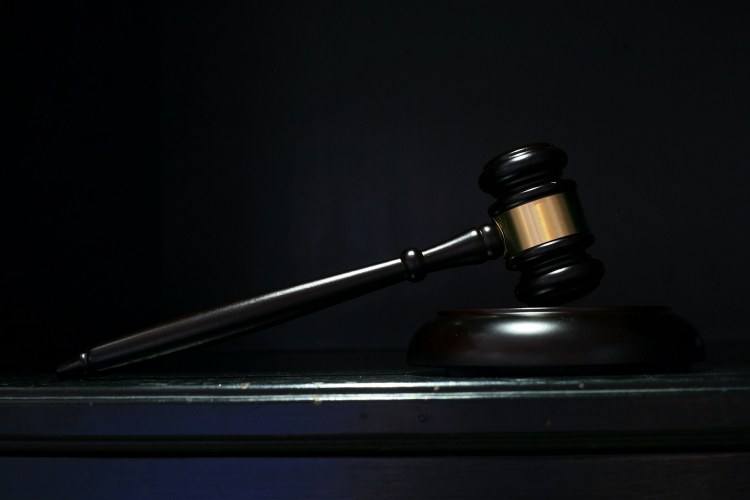What is a Bail Hearing?
News and Resources
If you have ever spent time watching police dramas on television (think, “Law&Order”) you have no doubt heard the term “bail hearing” bandied about by the various characters. What’s never really clear in these fictional representations of the justice system is exactly what a bail hearing is, who is compelled to attend a bail hearing and what role the bail bond agent plays in all of this. In an effort to clarify things for you, the team here at Tayler Made Bail Bonding have brought together this comprehensive guide to the bail hearing.
Denver County Bonding Company Explains the Bail Hearing
In some cases, a person who has been arrested is told shortly after arriving in jail how much their bail will be. They or a loved one then call the bail bond company and arrange for bail to be posted so they can go home. In other cases, however, a suspect will not be offered bail right away. Instead, they will be held over until they can appear before a judge or magistrate who will determine if they are to be offered bail and if so, the amount of that bail. This is called a bail hearing.
But why are some people offered bail almost immediately while others are forced to wait for a bail hearing? In almost all cases it comes down to one of the following:
- The suspect has a lengthy criminal record.
- The suspect has jumped bail at some point in the past.
- The nature of the offense may preclude use of a bail schedule.
- The defense attorney may want to argue before a judge for lower bail.
Who Attends a Bail Hearing?
In most cases the defendant and their attorney will be present as well as a judge or magistrate and a representative of the state, typically an Assistant DA. Because our judicial system prides itself on transparency, spectators may also be present.
What are the Factors Weighed During a Bail Hearing?
The precise list of factors considered will vary from situation to situation depending on the crime, the victim and the history and circumstances of the defendant. As a general rule, however, the following are considered to varying degrees:
- The nature of the crime the defendant is accused of
- The defendant’s criminal history (if any)
- Ties the defendant might have to the local community
- The defendant’s employment status and finances
- If the defendant is accused of a serious crime the court may instinctively feel that it’s in the best interests of the community to remand the defendant to custody until their trial. It will be up to the defendant and their attorney to provide a compelling argument during the bail hearing for allowing them to be released on bail.
Is Bail the Same for Everyone?
No, not everyone will have the same experience with bail. For minor offenses, the amount of bail will be low and there are likely to be few, if any, restrictions on the defendant other than forbidding them from leaving the state. In other cases, however, a judge or magistrate may impose any number of conditions on a particular defendant, including:
- Surrendering their passport or limiting their movement to the court’s jurisdictional area.
- Forbidding them from drinking alcohol or using recreational drugs.
- Compelling them to submit to drug and alcohol testing on a regular basis.
- Requiring them to show up for work like a responsible citizen.
- Requiring them to undergo psychological evaluation or treatment.
- Requiring them to wear a tracking device and check in with authorities.
- Requiring them to stay with a specific person who accepts responsibility for them.
- Prohibiting the defendant from possessing a firearm while out on bail.
- Mandating they maintain a minimal distance between themselves and alleged victims.
- Compelling them to adhere to a curfew.
Can You Appeal a Bail Decision?
The defendant and the state both have the right to appeal a decision made during a bail hearing. However, it should be noted that any appeal will be extremely narrow in scope, focusing almost exclusively on whether the judge or magistrate acted properly in granting or denying bail to the defendant.
The defense attorney may appeal the bail decision based on the claim that the amount of bail requested was unreasonable given the circumstances of the case and the personal history of the defendant and therefore in violation of the 8th amendment’s prohibition on excessive bail.
But frankly, it is rare for an appellate court to overturn a bail decision made by a judge or magistrate. Therefore, your best bet of securing your release via bail, and ensuring affordable bail bonds are assigned, is to present a convincing case to the court during the bail hearing. If you hope to emerge from the bail hearing with a favorable ruling it is imperative that both you and your defense attorney engage in thorough preparation.
Final Thoughts From Our Cash Bail Agents
One thing you may have noticed during this discussion is that at no time did we mention the role of the bondsman in the bail hearing. That’s because they don’t have one. Whether you’ve been arrested in Jefferson County, Lakewood, Golden or elsewhere you do not contact the bondsman until the conclusion of the bail hearing. Of course, if bail was denied during the hearing you will not be contacting the bondsman at all.
If you need the services of an experienced, trustworthy bonding agent get in touch with Tayler Made Bail Bonding by calling (303) 623-0399.
Contact Info
Tayler Made Bail Bonding is available 24 hours a day and 7 days a week.
(303) 623-0399email@taylermadebailbonding.com
3595 South Teller Street
Suite 300A
Lakewood, CO 80235
@TaylerMadeBail

